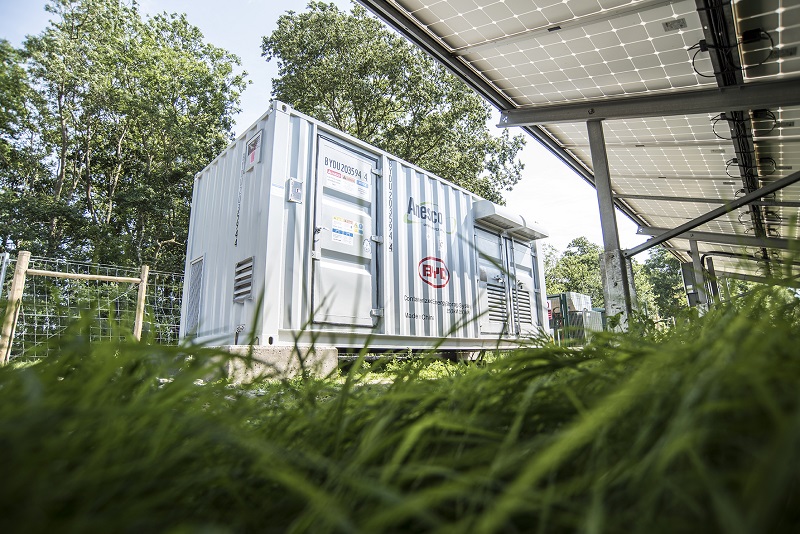Japanese technology company NEC will supply 20 MW of grid-connected storage to the UK division of Danish renewables developer OErsted, it was announced yesterday.
Earlier this week, Irish utility ESB announced its debut in the U.K. storage market, with the acquisition of a 7 MWh site that has been fully operational at Mill Farm, Lincolnshire since April. The project was acquired from London-based developer Anesco.
Both utilities state their storage projects will contribute ancillary services to National Grid, the U.K.'s grid operator.
ESB spokesman Paul Hand told pv magazine: “ESB has been trialing batteries for a number of years … and [views] this technology as one of the technologies to support the transition to a low carbon energy future based on clean, reliable, affordable electricity. Mill Farm is our first grid connected battery, and we are assessing further opportunities including co-location with other assets both in [the] U.K. and Ireland. In addition to developing sites in the U.K. and Ireland, ESB has commenced procuring equipment for these sites.”
ESB bought the assets from Anesco for an undisclosed sum and the developer will continue to deliver operations and maintenance services, using its AnescoMeter.
“The relationship has developed thanks to our unique ability to model long term revenue streams and prove the financial viability of energy storage for investors,” says Steve Shine, Anesco Executive Chairman. “As the U.K.'s largest and most established energy storage provider, we've been able to create the industry's most accurate modeling tool. It can be used to predict whole life cost, IRR [internal rate of return] and long term revenue streams – all crucial information that sets us apart from every other developer in the country.”
Popular content
NEC's Energy Solutions storage subsidiary says its 20 MWh project will be operational by the end of the year.
“The future energy system will be completely transformed from what it is today, with a smarter, more flexible grid; balancing supply and demand with new technology and cleaner energy generation,” says Matthew Wright, Managing Director of Oersted UK. “We want to continue to be at the forefront of this exciting shift towards a decarbonized energy system. Acquiring the Carnegie Road plant is an important step forward, as it's our first commercial scale battery storage project. We're investing billions of pounds in the U.K.'s energy infrastructure, and this is another significant investment that puts the U.K. at the heart of the global energy transition.”
With an increasing amount of variable renewable energy assets connected to the grid, it has become more challenging to ensure stability of supply. Grid operators and utilities are turning to battery storage systems to avoid costly infrastructure investment and to ensure electricity demand can be met using as much renewable energy as possible, without paying the price of fluctuating grid stability.
The costs of such stabilization technology have dropped rapidly of late, and a recent report by BNEF [Bloomberg New Energy Finance] predicts storage systems are likely to be the key to integrating renewable energy assets at large scale into grids. With the growing adoption of e-mobility lithium-ion systems, costs are expected to fall nearly two thirds up to 2050, allowing for their widespread use in electric vehicles, home storage systems and – as ESB and Oersted UK are demonstrating – grid service applications.
This content is protected by copyright and may not be reused. If you want to cooperate with us and would like to reuse some of our content, please contact: editors@pv-magazine.com.



4 comments
By submitting this form you agree to pv magazine using your data for the purposes of publishing your comment.
Your personal data will only be disclosed or otherwise transmitted to third parties for the purposes of spam filtering or if this is necessary for technical maintenance of the website. Any other transfer to third parties will not take place unless this is justified on the basis of applicable data protection regulations or if pv magazine is legally obliged to do so.
You may revoke this consent at any time with effect for the future, in which case your personal data will be deleted immediately. Otherwise, your data will be deleted if pv magazine has processed your request or the purpose of data storage is fulfilled.
Further information on data privacy can be found in our Data Protection Policy.